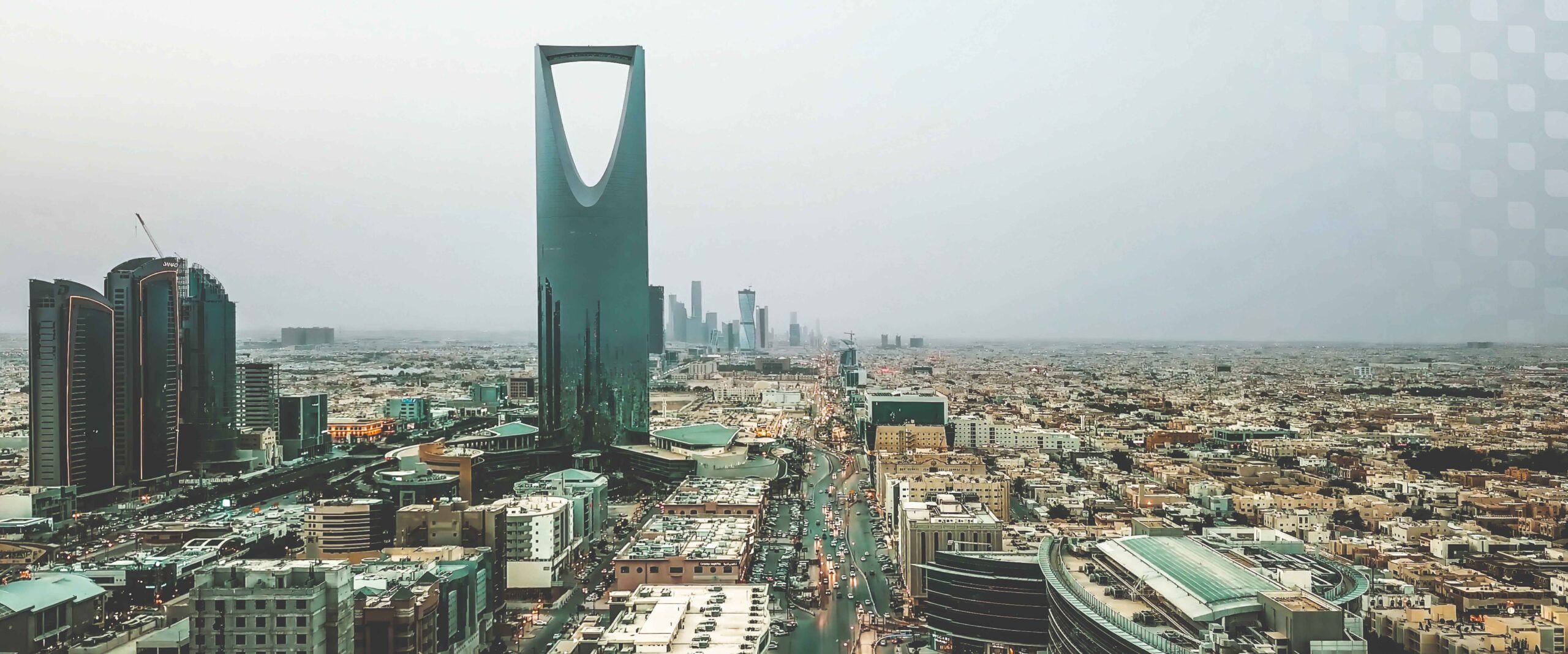Overview of Saudi Economic Landscape
Saudi Arabia has recently achieved a significant economic landmark by surpassing a Gross Domestic Product (GDP) of $1 trillion for the first time since its foundation 91 years ago. This achievement places it among the top 20 economies worldwide. The Kingdom’s economy is on an upward trajectory with an expected growth rate of 4.1% in 2024, primarily fueled by industries beyond the oil sector. In the venture capital scene, Saudi Arabia is setting the pace in the Middle East and North Africa, with its startups securing $1.4 billion in 2023 alone. This represents a significant 33% increase from the year before, capturing more than half of the region’s venture capital investments.
The country’s recent inclusion in the BRICS group signals exciting economic prospects and avenues for diversification. Moreover, the India Middle East Europe Economic Corridor (IMEC) launch aligns with Saudi Arabia’s ambition to broaden its trade networks and establish new commercial relationships globally. This approach is a crucial element of a broader strategy to develop a robust and diversified economy, moving beyond traditional oil revenues.
The Leading Business Sectors in Saudi Arabia
As Saudi Arabia embarks on its ambitious Vision 2030 plan, the Kingdom is diversifying its economy by focusing on key sectors that promise growth and innovation. This strategic plan aims to lessen the Kingdom’s oil dependency and pivot towards diversified economic activities while investing in the enhancement of infrastructure, healthcare, and education systems by the end of this decade.
Construction, sports, information and communication technology (ICT), tourism, and the food and beverage industry are among the leading areas receiving significant attention and investment. These sectors represent the forefront of Saudi Arabia’s efforts to transform its oil-dependent economy into a more diversified and sustainable one. Through strategic initiatives and investments, the Kingdom aims to enhance its economic resilience and position itself as a global leader in these industries.
Construction Business in Saudi Arabia
Saudi Arabia’s construction sector is experiencing a surge in growth, marked by cutting-edge trends and ambitious projects, making it one of the world’s rapidly expanding construction markets. By 2024, the market value is anticipated to hit USD 70.33 billion, and it is expected to climb to USD 91.36 billion by 2029. This signifies an annual growth rate of 5.37% from 2024 to 2029, spurred by Riyadh’s Vision 2030 objectives. The vision’s goal to diversify and privatize the nation’s expansive economy is manifested in massive undertakings such as Neom Future Cities, Qiddiya Entertainment City, and the Red Sea Project.
With the region’s highest number of construction opportunities, Saudi Arabia’s booming market presents a golden opportunity for international firms to participate and contribute to shaping the Kingdom’s future landscape. A notable initiative is The Line, a futuristic smart city project launched in 2020 near Riyadh, forming a part of NEOM. Situated in Saudi Arabia’s northwestern part, NEOM encompasses smart cities and towns, ports, commercial hubs, research facilities, sports, entertainment, and tourist destinations, showcasing the scale and ambition of Saudi Arabia’s construction endeavours.
Construction Market Segments
The construction market in Saudi Arabia is diverse, catering to a wide range of needs and ambitions:
- Commercial Construction
- Industrial Construction
- Infrastructure Construction
- Energy and Utilities Construction
- Institutional Construction
- Residential Construction
Tourism Business in Saudi Arabia
Travel, tourism, and entertainment are at the heart of Saudi Arabia’s Vision 2030, showcasing remarkable progress in recent years. The Kingdom has issued over 3,500 tourism investment licenses in just three years, marking a significant leap in the growth of its tourism industry. The tourism sector is poised for substantial expansion with the government’s efforts to enhance the business environment and simplify travel processes. Initially set to draw 100 million visitors by 2030, Saudi Arabia has ambitiously adjusted its goal to 150 million, motivated by a booming tourism influx. In the first nine months of 2023 alone, the Kingdom led the G20 nations in tourism growth, with record-breaking spending by international visitors and securing a spot as the world’s second-fastest-growing tourist destination.
To facilitate this surge, Saudi Arabia introduced an Instant E-Visa system for tourists from 49 countries, offering up to 90 days of continuous stay. New policies like the “Visiting Investor” visa further support the tourism industry’s uplift, which streamlines entry for potential investors. Vision 2030 aims to elevate the tourism and leisure sectors by developing world-class attractions, improving visa accessibility, and reviving historical and cultural sites.
The forthcoming World Expo 2030 in Riyadh is expected to be a major draw for international visitors. In addition, Saudi Arabia is gearing up to host several significant global sporting events, including the Federation for Equestrian Sports World Cup Finals in 2024, the 2025 Asian Indoor & Martial Arts Games, the Asian Football Confederation’s Asian Cup in 2027, the Asian Summer Games in 2034, and the 2034 FIFA World Cup. These events are crucial in establishing Saudi Arabia as a premier destination on the global tourism map, strengthening the Kingdom’s strategic push to become a leading player in the international tourism and entertainment sectors.
Information and Communication Technologies (ICT) Business in Saudi Arabia
Saudi Arabia’s Information and Communications Technology (ICT) sector is a powerhouse in the Middle East and North Africa, valued at over $40.9 billion and contributing 4.1% to the nation’s GDP. Positioned as the region’s largest and fastest-growing ICT market, the Kingdom is on a strategic path to become a key hub for technology services and cloud computing. Its advantageous geographical location, bridging the Red Sea and the Gulf, makes it an ideal centre to serve European, Asian, and African markets.
Aligned with Vision 2030, the Ministry of Communications and Information Technology (MCIT) aims to build cutting-edge digital infrastructure. This ambition seeks to push forward digital transformation in various fields, including e-commerce, digital education, health technologies, smart city developments, national data management, and electronic government services. The 2023 ICT Strategy outlines ambitious goals to generate over 25,000 ICT jobs, boost the IT market and emerging technologies by 50%, and increase the sector’s contribution to the GDP by $13.3 billion. Key to this strategy is drawing in foreign investment and supporting women’s participation in the ICT sector.
A noteworthy initiative by the Economic Cities and Special Zones Authority is the establishment of a Cloud Computing Special Economic Zone. This unique proposition in the region allows cloud service providers to set up data centres and offer various cloud services throughout Saudi Arabia, signifying a major step towards achieving global leadership in the ICT domain.
Key areas of focus within the ICT sector include:
- Cybersecurity: Enhancing the security of digital systems and networks.
- Internet of Things (IoT) & Smart Cities: Integrating digital and physical worlds to create more efficient and sustainable urban environments.
- Cloud Computing: Providing scalable and flexible IT resources over the Internet.
- Artificial Intelligence (AI): Developing intelligent machines capable of performing tasks that typically require human intelligence.
- 5G: Implementing the fifth generation of mobile networks for faster and more reliable internet connectivity.
- E-Commerce: Growing the online marketplace for buying and selling goods and services.
These sub-sectors are pivotal to Saudi Arabia’s vision of establishing a modern, diversified economy and underline the Kingdom’s commitment to embracing the digital revolution.
Sports Business in Saudi Arabia
Saudi Arabia is quickly establishing itself as a central venue for significant sporting events, tapping into the growing enthusiasm for sports among its people. The Kingdom has already made headlines by hosting high-profile boxing matches, ATP tennis tournaments, and Formula 1 races since 2021. This trend is set to continue with a promising lineup of major events on the horizon, including the Asian Indoor and Martial Arts Games in 2025, the AFC Asian Cup in 2027, the Asian Winter Games in 2029, the Asian Games in 2034, and the eagerly awaited FIFA World Cup in 2034.
The business side of Saudi Arabia’s sports sector is poised for remarkable expansion, especially with the upcoming FIFA World Cup in 2034 acting as a significant growth catalyst. This expansion is driven not only by the anticipation of future events but also by deliberate strategic investments. The Kingdom’s football industry, mainly, has seen significant attention, with the Public Investment Fund acquiring substantial shares in four major football clubs. By 2030, the sports sector in Saudi Arabia is projected to grow by 5 to 7 times its current size, propelled by these investments and the vast commercial potential yet to be fully explored in the market.
This booming sports sector opens up a myriad of business opportunities, including:
Sports academies and coaching centres: Offering training and development programs for athletes.
Sports event management: Organizing and managing sports events and tournaments.
Fitness centres and gyms: Catering to the increasing demand for personal fitness and wellness.
Sports retail stores: Providing sports equipment, apparel, and accessories to a growing market of sports enthusiasts.
These opportunities highlight the dynamic nature of Saudi Arabia’s sports industry and its potential to become a leading global sports destination, reflecting the Kingdom’s broader economic and social ambitions under Vision 2030.
Food and Beverage Business in Saudi Arabia
Saudi Arabia is experiencing a significant uptick in the demand for diverse and high-quality food and beverage options, thanks to its varied population and a booming tourism industry. The Kingdom is set for substantial investment in its food sector, aiming for $20 billion by 2035. This investment is expected to significantly enhance industries such as poultry, dairy, bakery, confectionery, and the production of beverages and juices. With the Saudi food and beverage market projected to rise from USD 23.48 billion in 2024 to USD 27.83 billion by 2029, it’s looking at a growth rate of 3.44% annually during this period.
The flourishing food and dairy sector and a spike in the consumption of milk and dairy products power this growth. In response, companies are introducing healthier choices like organic, locally produced, and halal-certified items, in line with government efforts to encourage healthy eating habits among the population. The appetite for international cuisine is another trend reshaping Saudi Arabia’s food scene. The Kingdom’s diverse residents and increasing tourist arrivals drive the demand for a wide range of global foods, from Asian and Mediterranean to American dishes. This has led to a nationwide surge in international dining establishments and food chains.
The expansive scope of the market includes a variety of product types and distribution channels, covering sectors such as dairy and alternatives, confectionery, beverages, bakery goods, snacks, meat and poultry, seafood and meat substitutes, breakfast cereals, and ready-to-eat meals. The dairy category is split into traditional products and alternatives. Confectionery includes chocolates, sugary treats, and snack bars like cereal and energy bars. Beverages are categorized into alcoholic and non-alcoholic options. The bakery sector features a range of products from cakes and pastries to biscuits, bread, morning goods, and frozen baked items.
Launch Your Business in Saudi Arabia with Creative Zone
Starting a profitable business in the Kingdom is easy with Creative Zone Saudi Arabia. Our tailored services are designed to simplify the process, from understanding regulatory requirements to securing the necessary licenses and beyond. We offer a range of services, including market analysis, legal and compliance assistance, financial advisory, and on-the-ground support to ensure your business starts on the right foot and continues to grow.
Start your Saudi business journey now!




